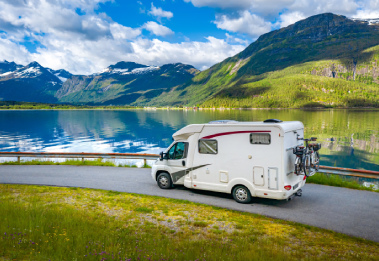RV road trips are an exciting way to explore the country, combining the freedom of travel with the comforts of home. Whether you’re a weekend adventurer or a full-time RVer, understanding RV insurance is crucial to protect yourself, your vehicle, and your belongings. Here’s what you need to know about RV insurance before embarking on your journey.
What Is RV Insurance?
RV insurance is a specialized type of coverage designed to protect motorhomes, travel trailers, and campers. It combines elements of auto and homeowners insurance because RVs often serve as both vehicles and living spaces. Coverage typically includes liability protection, collision and comprehensive coverage, and optional add-ons tailored to RV use.
Why Do You Need RV Insurance?
Unlike regular cars, RVs come with unique risks due to their size, usage, and value. Here’s why RV insurance matters:
- Legal Requirements: Most states require liability coverage for motorized RVs (e.g., Class A, B, and C motorhomes). Towable RVs (like travel trailers) may not require separate policies but are often covered under the towing vehicle’s liability insurance.
- Financial Protection: RVs are significant investments. Insurance safeguards against costly repairs from accidents, theft, or natural disasters.
- Specialized Coverage: Standard auto insurance doesn’t account for the unique needs of RV owners, such as protecting personal belongings or offering vacation liability coverage.
What Does RV Insurance Cover?
RV insurance policies vary based on your needs and usage, but typically include:
- Liability Coverage
- Covers damages or injuries you cause to others while driving your motorhome. This is legally required in most states for motorized RVs.
- Collision Coverage
- Pays for repairs if your RV collides with another vehicle or object, regardless of fault.
- Comprehensive Coverage
- Protects against non-collision incidents like theft, vandalism, fire, or damage from natural disasters.
- Personal Belongings Coverage
- Covers items inside your RV (e.g., electronics, camping gear) against theft or damage.
- Uninsured/Underinsured Motorist Coverage
- Provides protection if an uninsured driver causes damage to your RV or injures you.
- Roadside Assistance
- Offers towing and emergency services tailored for large vehicles like RVs.
- Vacation Liability
- Covers injuries or property damage that occurs while your RV is parked and used as a temporary residence.
What Isn’t Covered by Standard RV Insurance?
While comprehensive policies offer robust protection, there are limitations:
- Custom Equipment: Upgrades like solar panels or luxury interiors may require additional coverage.
- Full-Time Residency: If you live in your RV year-round, you’ll need full-time RV insurance rather than standard recreational coverage.
- International Travel: Most policies don’t cover driving outside North America.
- Personal Effects: While some policies cover belongings inside the RV, others may require supplemental coverage or rely on homeowners/renters insurance.
Part-Time vs Full-Time Coverage
Your insurance needs depend on how often you use your RV:
- Part-Time RVer: Basic liability and collision coverage may suffice for occasional trips.
- Full-Time RVer: Comprehensive policies with additional protections (e.g., personal liability and medical payments) are recommended for those who use their RV as their primary residence.
Do You Need Additional Coverage?
Depending on your lifestyle and travel plans, you might consider these add-ons:
- Trip Interruption Coverage
- Help cover lodging and food expenses if your trip is disrupted due to an accident or mechanical failure.
- Total Loss Replacement
- Replaces your RV with a comparable model if it’s totaled within a certain timeframe.
- Pet Injury Protection
- Covers veterinary costs if your pet is injured during an accident.
- Campsite Liability Coverage
- Protects against legal claims arising from injuries at campsites where your RV is parked.
Tips for Choosing the Right Policy
To ensure proper protection during your road trip:
- Assess Your Needs: Consider how often you use your RV and whether it serves as a recreational vehicle or primary residence.
- Compare Providers: Look for insurers specializing in RV coverage to find tailored options at competitive rates.
- Bundle Policies: Combining RV insurance with auto or homeowners insurance can save money and simplify management.
- Understand State Laws: Verify minimum liability requirements in the states you’ll be traveling through.
Final Thoughts
RV road trips offer freedom and adventure but come with unique risks that require specialized insurance coverage. Whether you’re a part-time traveler or full-time RVer, understanding what’s covered—and what isn’t—can help you avoid financial pitfalls during your journey.
Before hitting the road, take time to review your policy options and choose coverage that fits your lifestyle so you can focus on enjoying the open road without worry!
Learn more about Tom Needham Insurance Agency in Greensboro, NC. Contact us for a quote!

